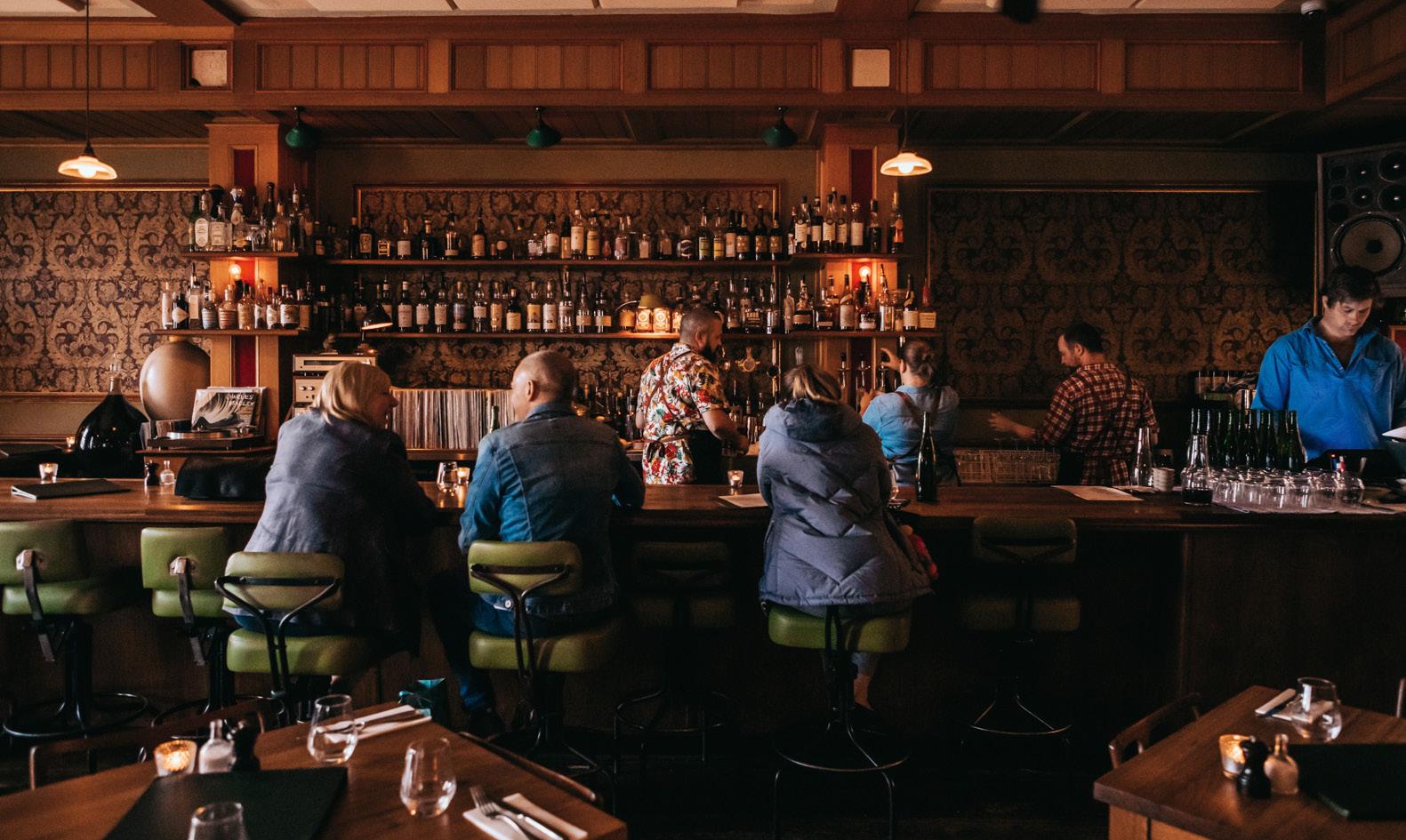
9 minute read
FEATURE: LONG TERM VENUES
TEST OF TIME
Hospitality chats with some of the country’s oldest venues to find out the secrets to their success.
WORDS Amy Northcott
PHOTOGRAPHY Kitti Gould and Steven Woodburn for Bistro Moncur; Monica Styles for Neighbourhood Wine; and Melanie Desa for Oriental Teahouse
RUNNING A HOSPITALITY business comes with plenty of challenges, particularly after the pandemic and in the midst of a cost-of-living crisis. But there are many venues across the country that have survived myriad ups and downs to cement themselves as foundational establishments in the communities they operate within. But just how have they done it? Hospitality speaks to Almay Jordaan from Neighbourhood Wine, Yanan Zhou from Oriental Teahouse, and Simon Tebbs and Tom Deadman from Bistro Moncur about how each venue came to be, navigating challenges, and remaining current in an ever-changing dining landscape.
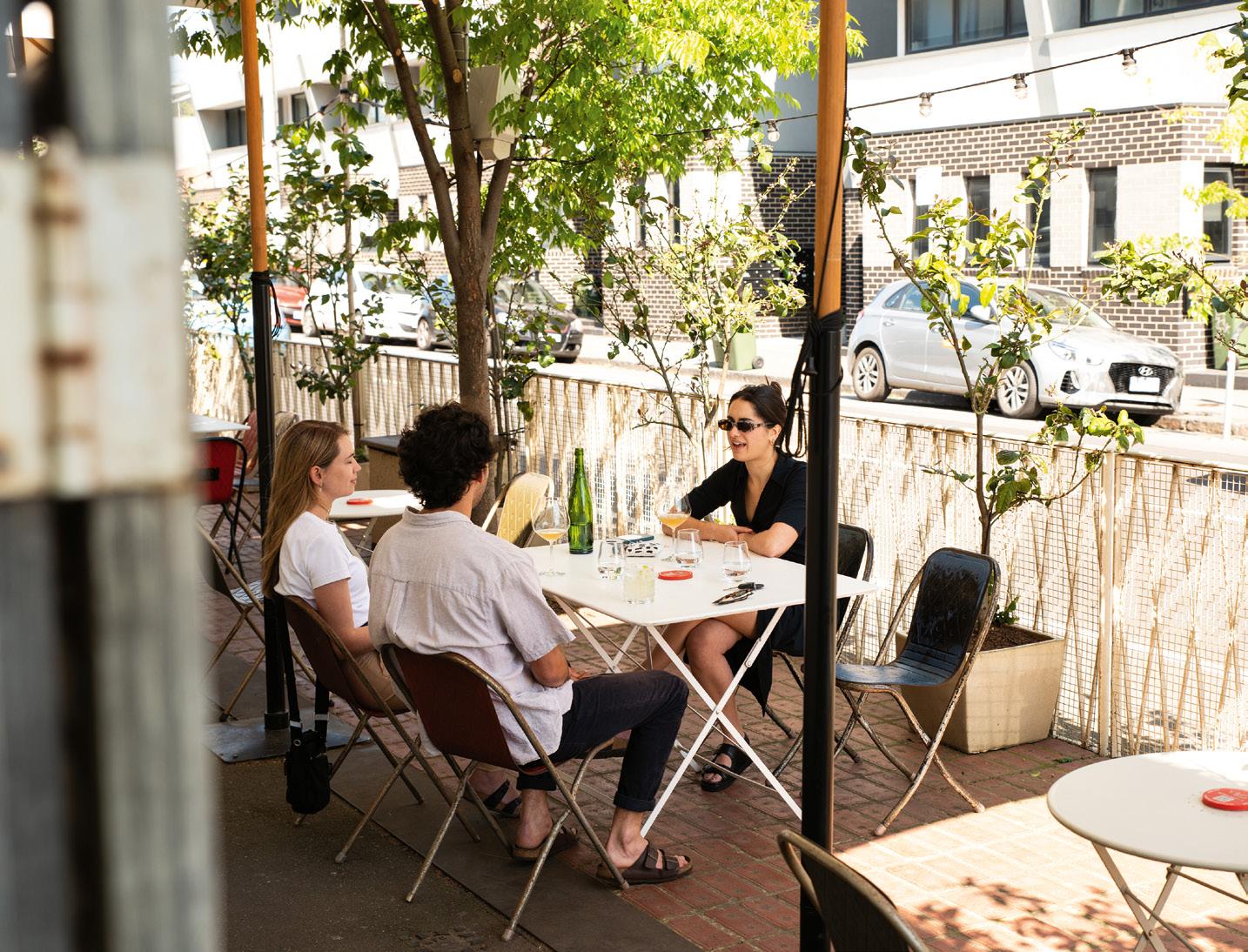
Neighbourhood Wine
10 YEARS
Neighbourhood Wine opened in Melbourne’s Fitzroy North just over 10 years ago and has become the go-to watering hole for many. Almay Jordaan is the co-owner and chef behind the much-loved establishment, going on to launch sibling venues Old Palm Liquor and Bahama Gold.
Jordaan and her team have taken a wide approach to keeping old and new patrons coming into Neighbourhood Wine from launching new menu offerings and partnerships to changing service times, and focusing on social media. But Jordaan says it all comes down to being able to self-critique. “It is key to always look for areas to improve and never be afraid to completely change direction if you feel something is not working anymore,” she says.
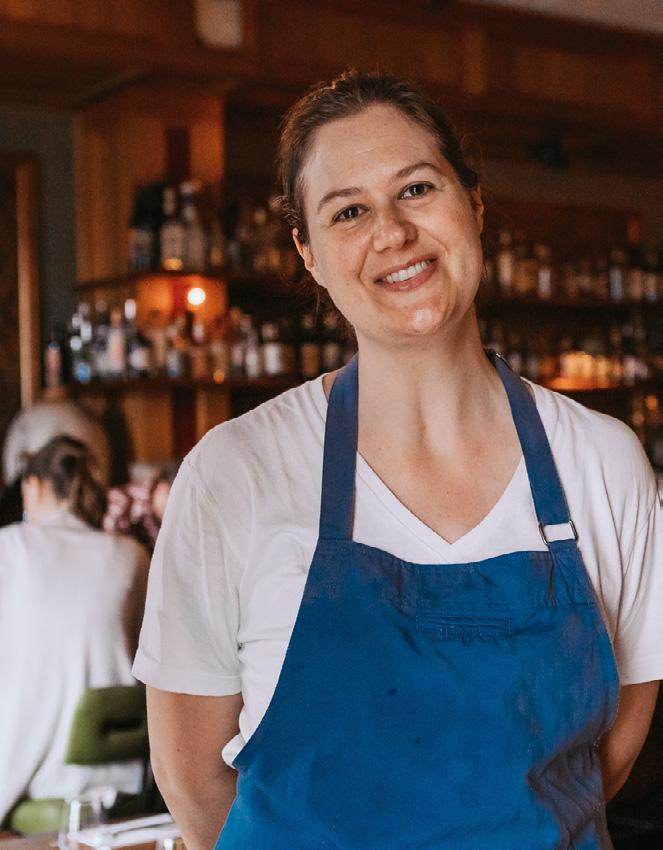
It is key to always look for areas to improve and never be afraid to completely change direction if you feel something is not working anymore.
– Almay Jordaan
“The Melbourne hospo scene is a fairly dynamic one — being static is not an option.”
Neighbourhood Wine’s food offering is rooted in dishes inspired by European cuisine, but has evolved over the years to reflect the strengths of the team. “When we opened, I cooked every service and really lived my dream, changing the menu as often as I wanted and relying on my French training to feature technically challenging items,” says Jordaan. But as more chefs joined the team, and Jordaan had children, she moved into a different position within the business. “I’m more in the role of culinary director and I work with the chefs heading up the kitchen team to create a menu that shows their style but is true to the venue’s ethos.”
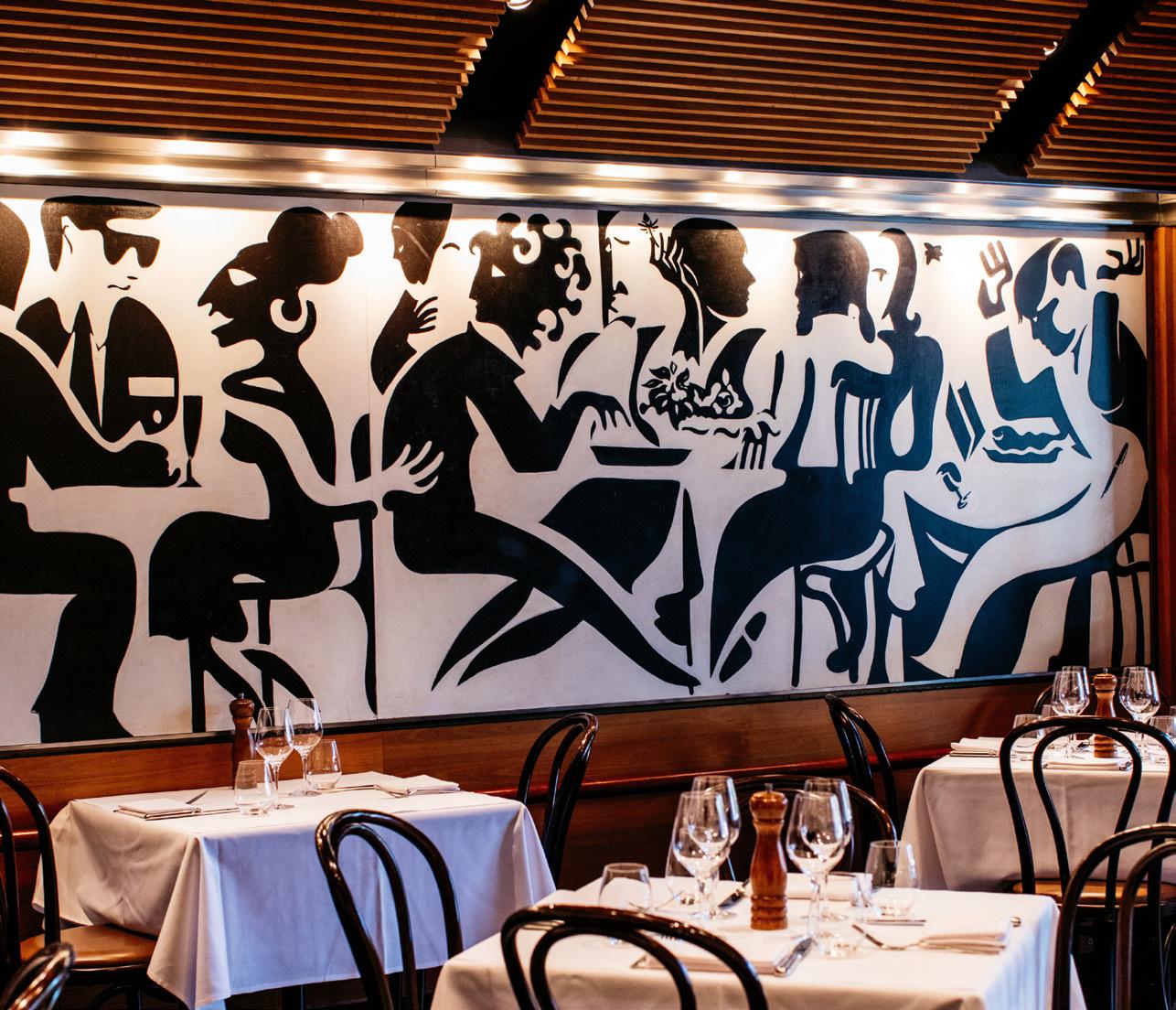
Jordaan believes commitment to the Neighbourhood Wine brand has been at the heart of its success. “We have remained faithful to our core values of being accessible and a place for everyone, while maintaining quality and value in our offering,” she says. Nurturing talent must also be prioritised. “Invest in training and good HR systems as soon as feasibly possible — your team is everything.”

Neighbourhood Wine’s clientele has always been varied, with the venue bringing in many different age groups. “It was a particularly young crowd when we first opened but has spread out more evenly over time,” says Jordaan. “We have always had a lot of loyal, local regulars, which is hugely important to us.”
Over the years, Jordaan has watched the wine bar scene evolve, with Neighbourhood launching at the start of the sector’s growth period. “When we opened, there was a handful of fairly conventional wine bars in town,” she says. “We leaned into the lo-fi side of things early as it was taking hold in Melbourne. So much for all the people who said it was a passing fad...”
Oriental Teahouse
20 YEARS
Oriental Teahouse first opened in 1993 in Melbourne’s CBD as a Chinese teashop. The venue went on to launch yum cha and is now celebrating its 20th anniversary.
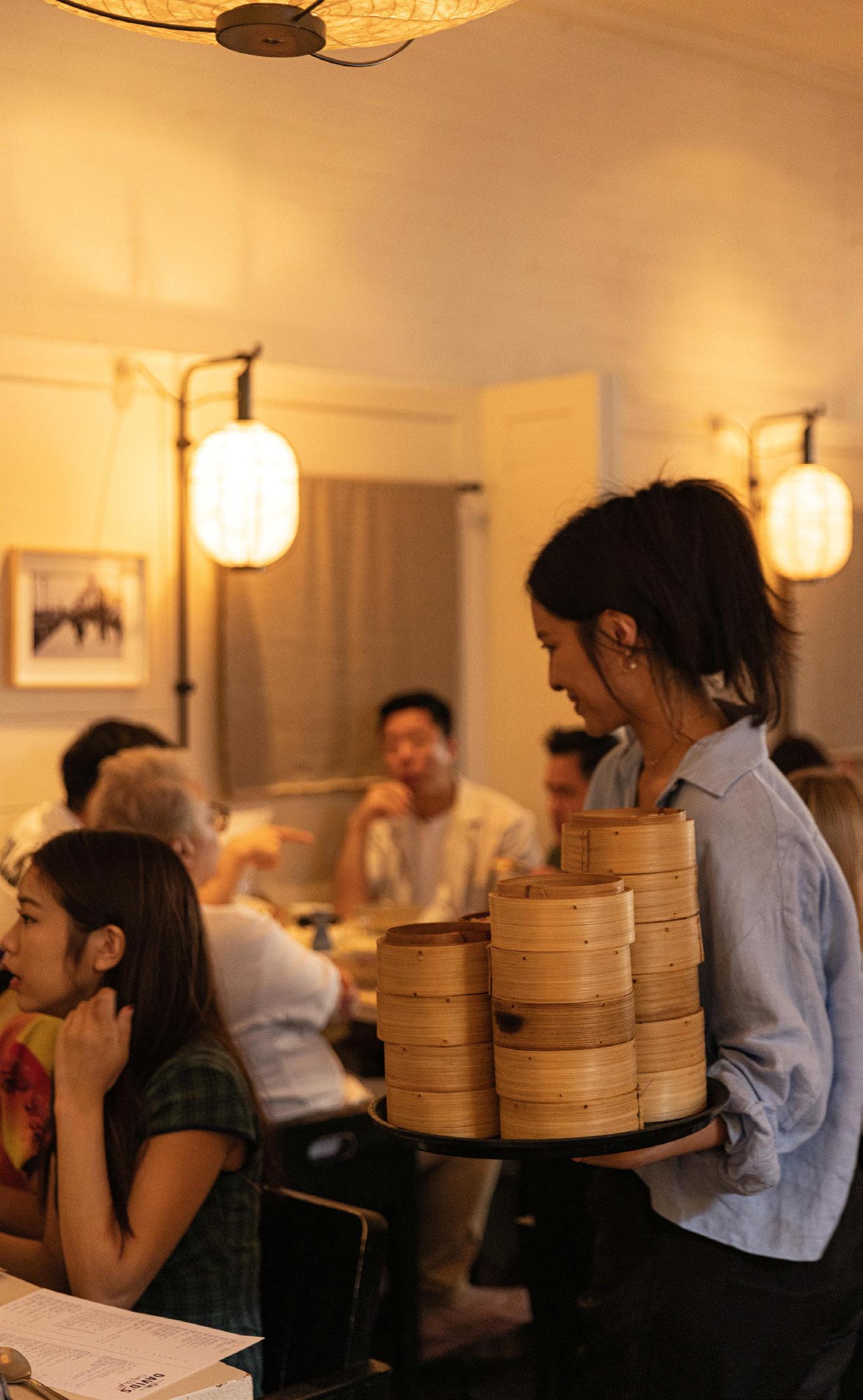
According to Oriental Teahouse General Manager Yanan Zhou, customers have been a vital part of the venue’s longevity and are of great importance to the team. “Our regulars supported us through Covid-19 and we are so lucky,” she says. Customers also play a role in keeping the Oriental Teahouse team across what dishes are working and what’s not. “We treat our customer feedback like data and find trends and patterns within repetitive feedback.”
One of Zhou’s most memorable dining stories is of two people who met at the South Yarra venue. “They were initially mistaken for a couple, but they were strangers,” says the GM. “Several weeks later, they returned for their official first date — evidently it went splendidly — and as the years passed, they have continued to mark their anniversaries with us.” Zhou says the family recently celebrated their daughter’s 16th birthday at the venue, which was a full-circle moment for the team.
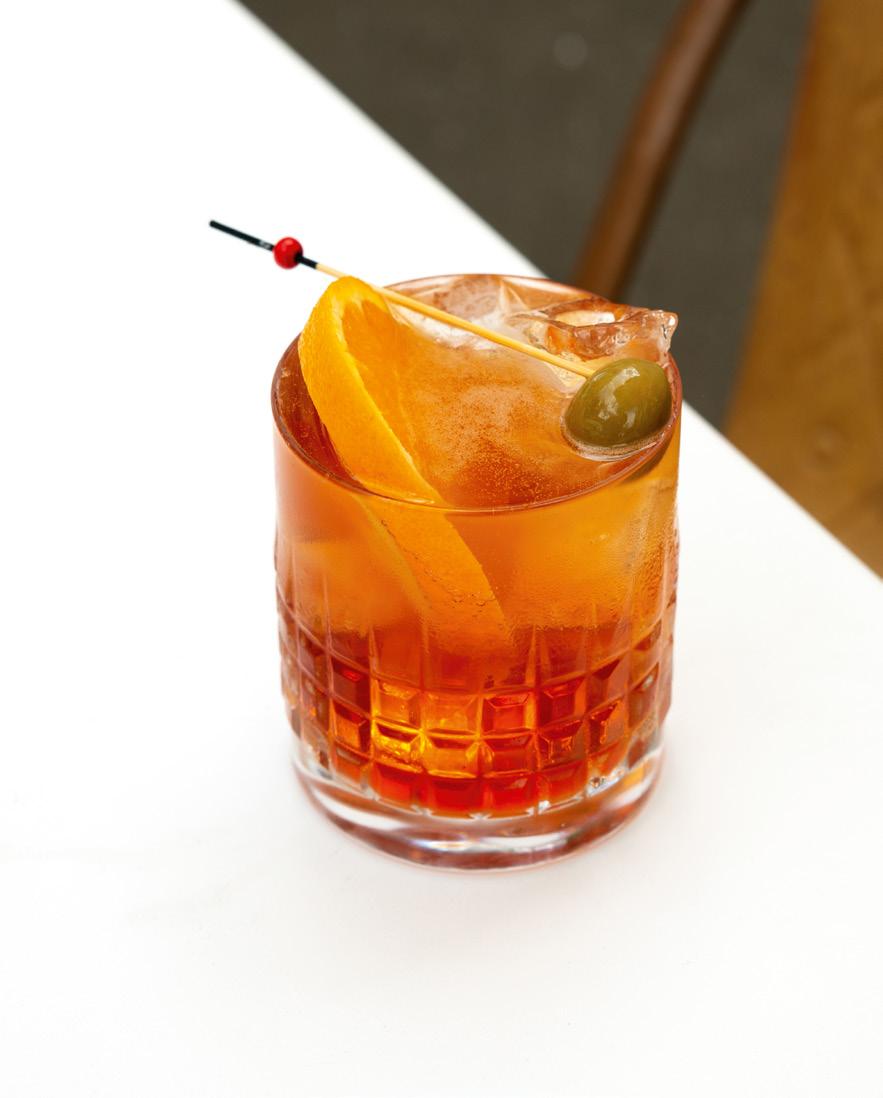
When it comes to challenges, Zhou says working together is vital. “It’s hospitality! Staffing, inflation … we face different challenges based on the current environment we are in,” she says. “We tackle obstacles by discussing the hard facts as a team and using our different backgrounds and experiences to make decisions.” Paying attention to numbers and data is also of great importance when it comes to navigating bumps in the road. “Everyone has great ideas and different priorities, so we have to get everyone on the same page and anchor them with a common goal. Our reliance on monthly and quarterly KPIs enables us to navigate the day-to-day fluctuations of the industry. By adopting an accumulative perspective when examining our numbers, we ensure that if we encounter a downturn one week, we can [strive] to regain our momentum in the subsequent weeks.”
Zhou’s advice for venues looking to make it long-term? The magic number. “The magic number resides in finding the optimal balance where we maximise our seating capacity without overburdening our team and risking customer complaints,” explains the GM. Zhou says this is achieved by determining the number of tables a single team member can serve and then deciding if more guests require more staff. “Work out the magic number per site, stick to it, and build a working model and the restaurant’s operations around it.”
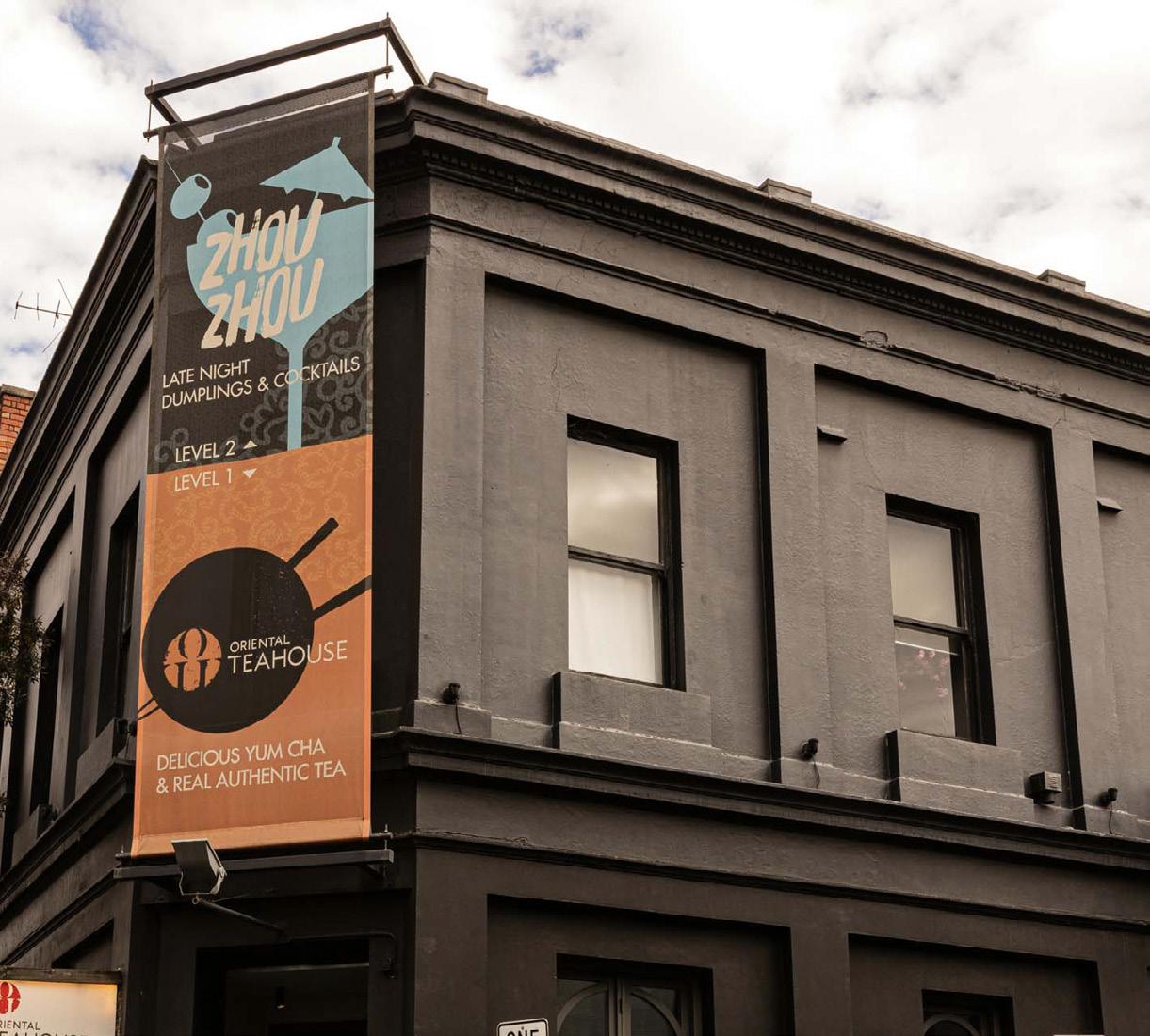
Looking to the future, Oriental Teahouse hopes to hit the century mark. “Our goal is to create a teahouse that can last over 100 years that we can pass through generations as a place of continuity.”
Bistro Moncur
30 YEARS
Bistro Moncur has been a long-standing favourite for locals in Sydney’s Woollahra. The French bistro opened its doors on 23 February 1993, with the restaurant celebrating 30 years of serving its signature bistro food made with local produce. “There are so many [dishes] that have grown their own fan clubs over the years,” says Restaurant Manager Simon Tebbs. “The problem is the menu is only so big and the list of must-have dishes has grown so vast that we must keep them in rotation to try and keep everyone happy!”
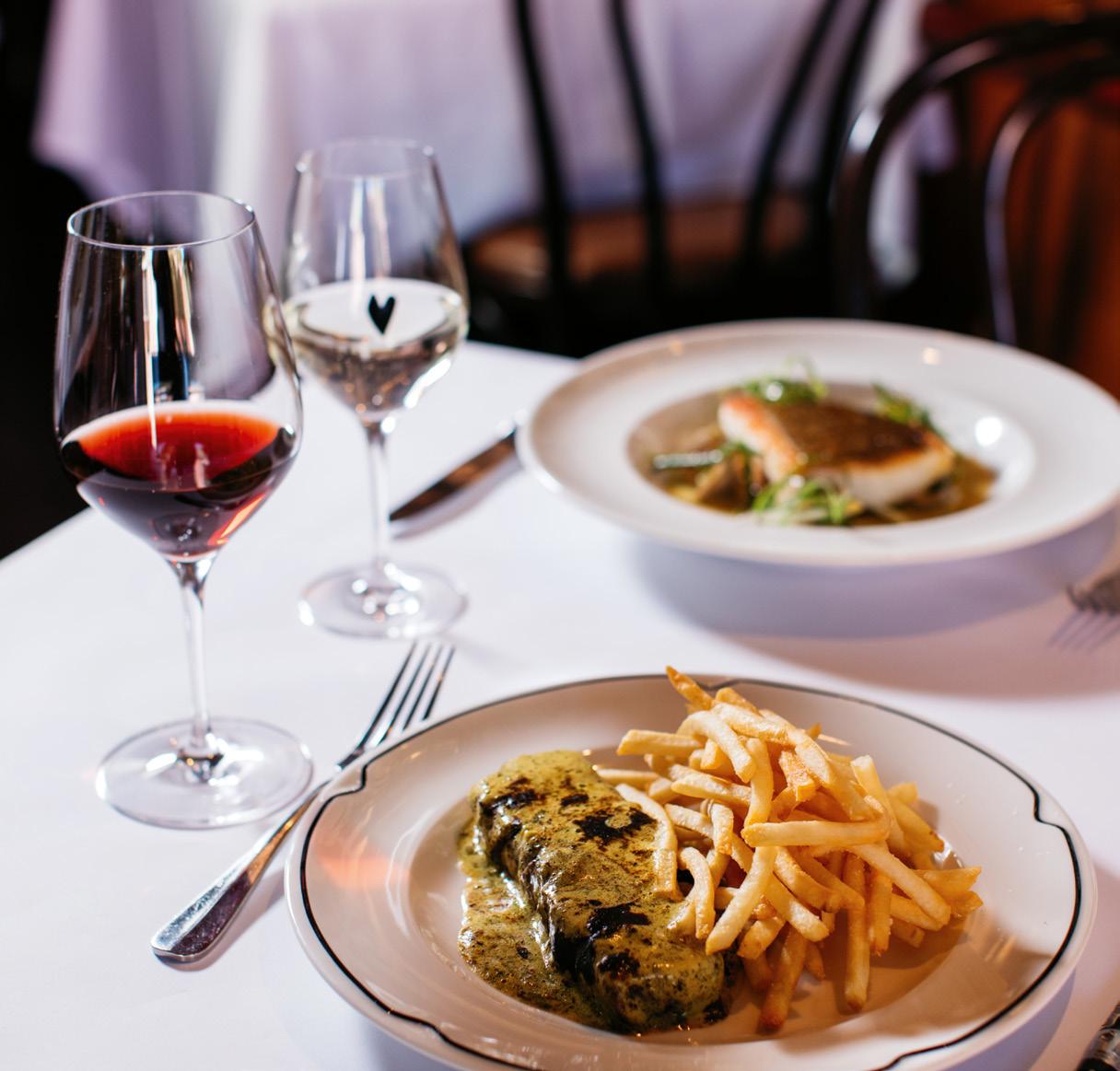
Tom Deadman is the current head chef of Bistro Moncur and admits the style of food hasn’t so much as changed as it has evolved. “It’s just a case of finding great ingredients and never stopping looking for the best,” he says. “We aim to keep it fairly French inspired … and technology has afforded us more advanced techniques, but the basics have stayed the same.”
While French bistro cuisine has remained at the heart of Bistro Moncur, each chef who has come through the kitchen has played their own role in keeping the menu fresh. Tebbs says the approach is vital for a long-term venue’s continued success. “Staying relevant is always on our minds, especially with so many great eateries opening all the time,” he admits. “Competition can be tough but it’s great to see the industry getting constant attention.” Tebbs attributes marketing as a means to build customer loyalty and keep guests coming back. “Establishing a meaningful and credible brand identity is incredibly powerful and takes a long time,” he says. “A well-thought-out marketing strategy is also essential … we allocate resources to PR, digital marketing, and social media to guarantee that our messages are delivered to the right audience at the right time.”
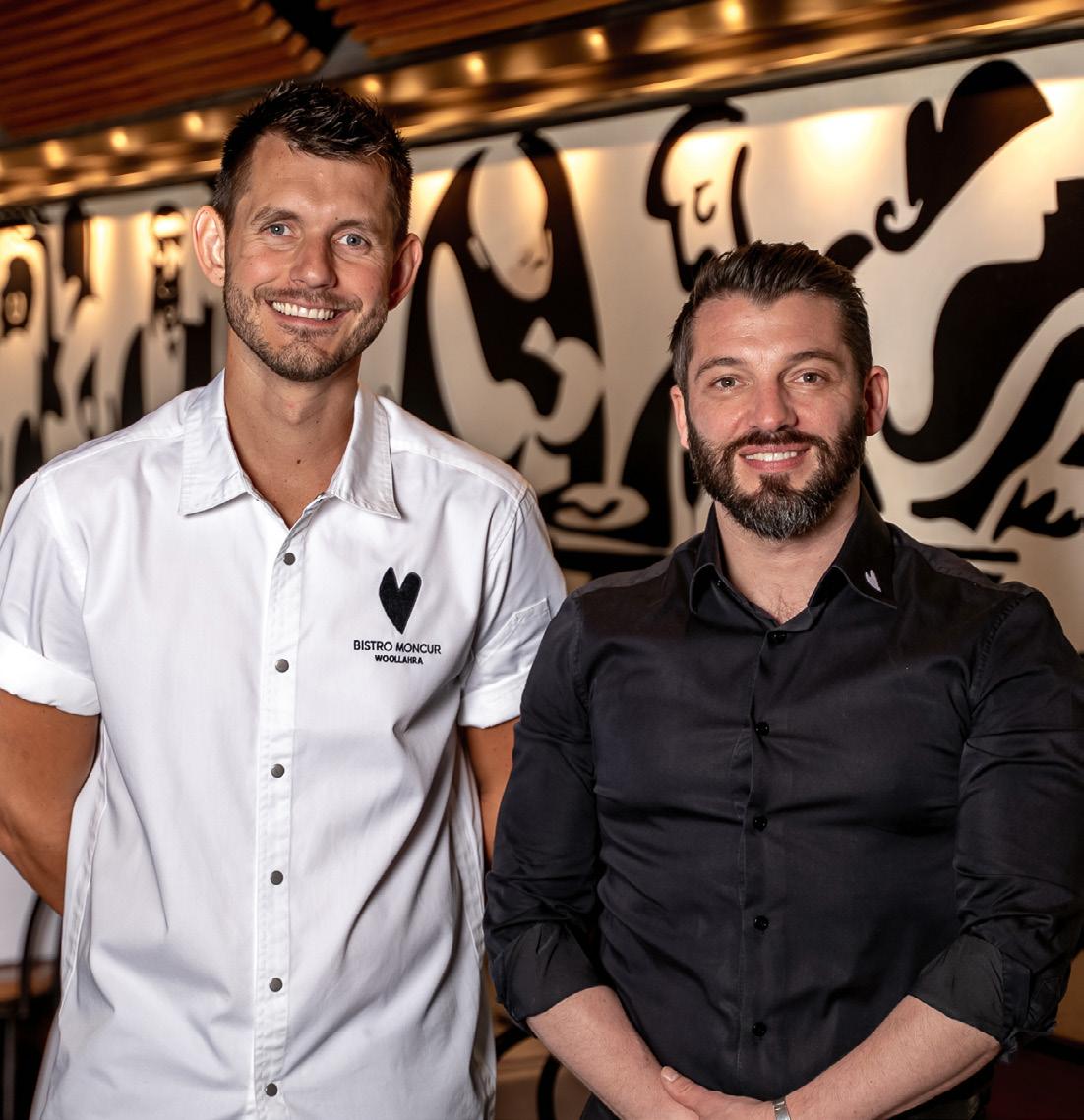
We treasure every one of them [our regulars], they have kept us going for decades.
–Simon Tebbs
Just like Jordaan and Zhou, Tebbs says people are at the core of Bistro Moncur’s success with the average staff tenure sitting between five and seven years. “We look after our team, we listen to them and make them feel comfortable and at home here,” he says. “What that means is that you generate a core team of people who want to be here. If they want to be here, so does the customer.”
Word-of-mouth advertising via regulars has played a key role in the restaurant’s longevity. “We treasure every one of them and they have kept us going for decades,” says Tebbs. “They have become part of the woodwork, and they tell a story about the bistro. They create so many great memories for us and we help to create theirs and they are of immense importance.”
It’s clear that a multi-pronged approach is the recipe for success, but people are head and shoulders above the numbers and even the food on the plate. A smooth-running, happy team creates a positive environment that people gravitate to and ultimately become invested in supporting in the long run.
Oriental Teahouse first opened as a teashop in 1993
All venues agree investing in people — both staff and diners — is vital
Tebbs notes the importance of marketing, public relations, and social media
Jordaan worked every service when she opened the bar







